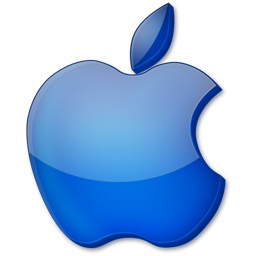Web-Safe Fonts for the Web
To assure that a website is rendered consistently and correctly, it is a best practice to use web-safe fonts. Below is a list of fonts used by the majority of website on the web.
| Font | Platform | CSS info |
|---|
 |
 MSIE MSIE |
[Bold, Italic] Originally named Monotype.com
font-family: "Andale Mono", "Monotype.com", monospace |
 |
 Mac Mac |
Also named Zapf Chancery on older Macs (and some Win PCs).
font-family: "Apple Chancery", "Zapf Chancery", cursive |
 |
 MSIE MSIE |
[Bold, Italic] Very similar to Helvetica.
font-family: Arial, Helvetica, sans-serif |
 |
 MSIE MSIE |
Less common than Arial. Do not use it with a bold font-weight; it’s bold enough already!
font-family: "Arial Black", sans-serif |
 |
 Mac Mac |
Not on pre-1999 Macs
font-family: Capitals, serif |
 |
 Mac Mac |
Mac system font (for menus, dialog boxes, etc.) since 1999. It will be very familiar to Mac users at 12 points, but also works well in headlines (without bold).
font-family: Charcoal, Chicago, sans-serif |
 |
 Mac Mac |
[Italic] Former Mac system font, replaced by Charcoal. Still present on every Mac ever made.
font-family: Chicago, Charcoal, sans-serif |
 |
 MSIE MSIE |
[Bold, Italic] An informal font designed to be easily legible on screen. Believe it or not, this is the default cursive font for Internet Explorer.
font-family: "Comic Sans MS", cursive |

 |
 Mac Mac
 Win Win |
[Bold, Italic] Courier is the most common monospace (typewriter-style) font. The Mac version of Courier (top left, shown at 18 points) is scalable; the Windows version (bottom left, 15 points) is not. Therefore the scalable "Courier New" is preferred, as it is usually available on both Mac and Windows.
font-family: "Courier New", Courier, monospace |
 |
 MSIE MSIE |
[Bold, Italic] See discussion under Courier
font-family: "Courier New", Courier, monospace |
 |
 Mac Mac |
[Bold, Italic] A Mac system font since 1984. Its appearance resembles Arial and Helvetica; its function is similar to MS Sans Serif (icon names on the Desktop, etc.).
font-family: Geneva, "MS Sans Serif", sans-serif |
 |
 MSIE MSIE |
[Bold, Italic] Designed by Microsoft for WWW use, Georgia is a traditional looking font with “old-style” numerals.
font-family: Georgia, serif |
 |
 Mac Mac |
[Bold, Italic] A Mac system font since 1984. On the Web, Helvetica is usually paired with the nearly identical (and more common) Arial.
font-family: Arial, Helvetica, sans-serif |
 |
 MSIE MSIE |
Less common than other MSIE fonts such as Arial. A very heavy, black font, good for headlines. Weight and width are sort of like Techno.
font-family: Impact, sans-serif |
 |
 Win Win |
Monospace system font dating back to Windows 95. Best at 12 pixels and under.
font-family: "MS Gothic", monospace |
 |
 Win Win |
Windows system font, used for dialog boxes, etc. Best at 12 pixels and under.
font-family: "MS Sans Serif", Geneva, sans-serif |
 |
 Win Win |
Windows system font. Best at 12 pixels and under.
font-family: "MS Serif", "New York", serif |
 |
 Mac Mac |
[Bold, Italic] Mac system font: similar in appearance to Times Roman, similar in function to MS Serif. By using a combination of font settings, you can include Mac and Windows fonts for your font preference
font-family: "New York", "MS Serif", serif |
 |
 Mac Mac |
A nice serif font, present on all Macs and fairly common on PCs (with office software suites).
font-family: Palatino, serif |
 |
 Win Win |
Tahoma does have the advantage of being present even on very old Windows PCs.
font-family: Tahoma, serifSansSerifMonospace |
 |
 Mac Mac |
Not on pre-1999 Macs
font-family: Techno, Impact, sans-serif |


 |
 Win Win |
A non-scalable, monospace system font used for the DOS or “command-line” interface. Terminal looks very different at different point sizes. Shown here are 9, 12, and 14 points.
font-family: Terminal, monospace |
 |
 Mac Mac |
Not on pre-1999 Macs
font-family: Textile, cursive |
 |
 Mac Mac |
Because some PCs have non-scalable fonts named Times, it is common to lead with the scalable, nearly ubiquitous MSIE font Times New Roman instead. Times is noticeably more compact than Times New Roman, so it can be too small to read on screen.
font-family: "Times New Roman", Times, serif |
 |
 MSIE MSIE |
This is by far the most common serif font on the Web. It is the default serif font in most browsers.
font-family: "Times New Roman", serif |
 |
 |
A sans-serif font designed (like Verdana) for legibility on screen.
font-family: "Trebuchet MS", sans-serif |
 |

|
Possibly the most readable of the sans-serif fonts commissioned by Microsoft for on-screen use. However, Verdana shouldn’t be used side-by-side with same-sized serif fonts, because Verdana will appear one or two sizes larger.
font-family: Verdana, Arial, Helvetica, sans-serif
 |
|